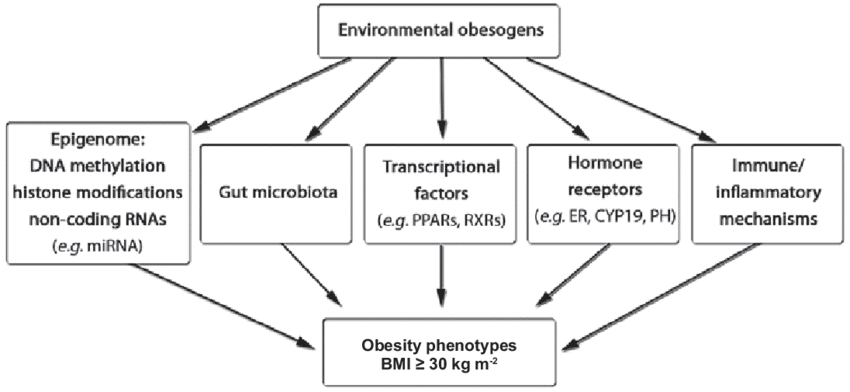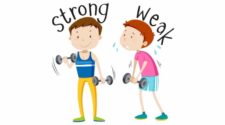It’s common knowledge that if you eat more energy than you burn, then you’re going to gain weight. Though there have been a variety of diets claiming it’s the quality of the calories and not the amount of calories, such as paleo and Atkins, the theory of energy balance (calories in vs calories out/CICO) has remained constant.
Yet, new information may suggest that there’s a hidden cuilprit of obesity, something in our food, water and environment which determines which areas are more likely to develop into being overweight.
What are obesogens and what do they do?
A 2012 paper released in the Journal of Environmental Health Perspectives creates a clear link between obesogen levels and the density of obesity in certain areas. According to the researcher, Wendee Holtcamp, Obesogens are “dietary, pharmaceutical, and industrial compounds that may alter metabolic processes and predispose some people to gain weight.” The term ‘obesogens’ by itself, however, simply refers to environmental chemicals.
We all know that obesity is on the rise, but it can seem like certain areas are naturally fitter whereas others contain a more overweight population. This is usually thought to be linked to the amount of fast food available in the area. However, this research may suggest that it’s actually due to certain chemicals found in the area and therefore, it’s not 100% people’s fault that they struggle to stay slim.
The main concern is when women are pregnant, as exposure to obesogens may predispose their babies to being overweight. “I would not want to say that obesogen exposure takes away free will or dooms you to be fat. However, it will change your metabolic set points for gaining weight.” Though, they do go on to state that minimising exposure to obesogens can reduce their effects.
The paper states that there are “between fifteen and twenty chemicals” which are associated with weight gain. Most of these have only been shown to affect developing babies, children and adolescents, but some can still affect adults. The chemicals tend to be found in food and water, but some are found in pharmaceuticals like the diabetes drug, Avandia. The link between the chemical content of blood and the resulting degree of obesity is still being studied with more and more research still coming out, but so far, there are multiple signs pointing to a positive association.
A common source of obesogens won’t be a surprise: smoking. “One of the earliest links between human foetal development and obesity arose from studies of exposure to cigarette smoke.” This means that not only direct smoking can increase weight gain, but also second hand smoking. “Babies born to smoking mothers are frequently underweight, but these same infants tend to make up for it by putting on more weight during infancy and childhood.”
A 2013 research paper stated that these chemicals do not cause weight gain in and of themselves, but increase hunger and reduce the speed of your metabolism. The metabolism is how much energy your cells use throughout the day. The faster your metabolism, the more inefficient it is as it needs more energy to complete your daily tasks. This is because the cells are operating at a faster rate. A slower metabolism means that your cells require less energy. This is why those with a slow metabolism may have a harder time staying slim: their body is simply using less energy throughout the day. If these chemicals are making people hungrier whilst also slowing their metabolism, then the natural signalling which prevents humans from growing overweight will be impaired. Certain hormones in our body such as ghrelin tell our minds how much to eat based on the amount of fat (energy) we have stored. The more we have stored, then the less we should eat. Though, poor sleep, lack of exercise, smoking, poor diet, and now obesogens have all been linked to reduced satiety and overeating.
In fact, a 2012 study labelled obesogens as “chemicals that directly or indirectly lead to increased fat accumulation” that also “predispose an organism to store more fat from the beginning of its life.” If you’ve always been larger, then obesogens could be the reason.
Final Thoughts and Recommendations
So, what should you do with all this information? In reality, the normal recommendations still remain: eat lots of fruits and vegetables, aim for natural foods where possible, limit the amount you drink and smoke, and make sure to exercise on a regular basis. This will both make your body better prepared to battle obesity and less reliant on pharmaceutical drugs. It may not be possible to completely eradicate all exposure to obesogens, but that doesn’t mean you can’t limit your exposure.
Not to mention, obesogens do not void calories in versus calories out, nor do they confirm that you have to be obese. Eating smart and choosing your food wisely Is still the best way to remain slim and healthy.








Leave a Reply